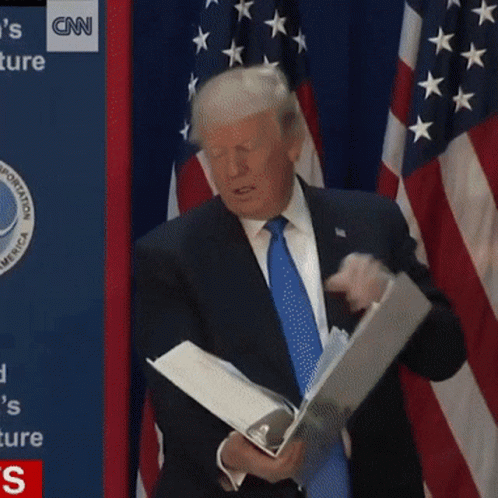What Does Tltr Mean?
The acronym TLTR stands for “Too Long To Read.” It is commonly used to indicate that a post, article, or message is too lengthy and the recipient is not interested in reading it. It is often used in online forums, social media, and text messaging to express a lack of interest or time to engage with lengthy content. The term TLTR originated in the digital era and is frequently used in online discussions and comments. It is a concise way to convey that the content is too lengthy and the recipient prefers a shorter or more summarized version. The abbreviation TLTR is similar in meaning to other abbreviations such as TLDNR (Too Long Did Not Read) and TLDR (Too Long Didn’t Read). Here are some examples of how to use TLTR in conversation:
- “I just came across an article about the history of ancient civilizations, but it was TLTR. Can you give me a brief summary?”
- “I received a long email from my boss, but I didn’t have time to read it all. I replied with TLTR and asked for a shorter version.”
- “I tried to read the terms and conditions for a new app, but it was TLTR. I just clicked ‘Agree’ without reading it.”
- “My friend sent me a long text message about her day, but I was busy and replied with TLTR. I’ll catch up with her later.”
- “I saw a post on social media with a lengthy caption, but it was TLTR. I scrolled past it without reading.”
It’s important to note that TLTR is a casual and informal term used to express a lack of interest or time to read lengthy content. It is not intended to be rude or dismissive, but rather a way to communicate a preference for shorter or summarized information.



What Does Tltr Mean From a Girl?
When a girl uses the acronym tltr, it generally means the same thing as when anyone else uses it: “Too Long To Read.” It is a way of expressing that she finds a post, article, or message to be too lengthy and doesn’t have the time or interest to read it all.
Here are some key points to consider:
- Specific meaning from a girl: Girls use tltr in the same way as guys and people of any gender. It is a shorthand way of saying that something is too long and they don’t want to read it all.
- How girls use it: Girls may use tltr in various online platforms, such as social media, forums, or text messaging, to express their lack of interest or time to engage with lengthy content.
- How to reply: If someone uses tltr in a conversation with you, it’s best to respect their preference and not take offense. If you have important information to convey, try summarizing it or asking if they would like a shorter version.
It’s important to note that girls use tltr similarly to everyone else. There isn’t a specific meaning or usage unique to girls. However, individuals may have different thresholds for what they consider “too long,” so it’s always good to be mindful of others’ preferences.
So, if a girl uses tltr in a conversation with you, don’t take it personally. It’s just her way of saying that she prefers shorter or summarized information.
Example 1:
- Girl A: Did you see that long article about the new movie?
- Girl B: Yeah, I saw it, but it was tltr for me. Can you give me a quick summary?
Example 2:
- Guy: I sent you a long message explaining everything.
- Girl: Sorry, I didn’t read it. It was tltr. Can you give me the main points?
Example 3:
- Girl A: Have you seen the latest episode of that show?
- Girl B: No, I haven’t had time to watch it yet. The episodes are always tltr.
Example 4:
- Guy: I wrote a really long post on Facebook about my trip.
- Girl: Sorry, I didn’t read it. It was tltr. Can you give me a brief summary?
Example 5:
- Guy: I found this interesting article about climate change.
- Girl: Sounds cool, but I’m busy right now. It’s tltr for me. Maybe later.
What Does Tltr Mean From a Guy?
When a guy uses the acronym TLTR in conversation, it generally means the same thing as when anyone else uses it: “Too Long To Read.” Guys use TLTR to express that they find a post, article, or message to be too lengthy and don’t have the time or interest to read it all.
Here are some key points to consider:
- Specific meaning from a guy: Guys use TLTR in the same way as girls and people of any gender. It is a way of saying that something is too long and they don’t want to read it all.
- How guys use it: Guys may use TLTR in various online platforms, such as social media, forums, or text messaging, to express their lack of interest or time to engage with lengthy content.
- How to reply: If a guy uses TLTR in a conversation with you, it’s best to respect his preference and not take offense. If you have important information to convey, try summarizing it or asking if he would like a shorter version.
It’s important to note that guys use TLTR similarly to everyone else. There isn’t a specific meaning or usage unique to guys. However, individuals may have different thresholds for what they consider “too long,” so it’s always good to be mindful of others’ preferences.
So, if a guy uses TLTR in a conversation with you, don’t take it personally. It’s just his way of saying that he prefers shorter or summarized information.
Example 1:
- Guy 1: Did you see that new episode of our favorite show?
- Guy 2: Nah, man. I saw the runtime and it was TLTR. I’ll catch up later.
Example 2:
- Guy 1: I found this really interesting article about space exploration.
- Guy 2: Sounds cool, but it’s TLTR for me right now. Can you give me a quick summary?
Example 3:
- Guy 1: Check out this book I just finished reading. It’s amazing!
- Guy 2: Looks interesting, but the size is TLTR for me. Give me the highlights instead.
Example 4:
- Guy 1: I wrote a long post on social media about my recent trip.
- Guy 2: Sorry, dude. It’s TLTR for me. Can you give me the short version?
Example 5:
- Guy 1: I received an email with a lot of information about the upcoming project.
- Guy 2: Ugh, TLTR. Can you summarize the key points for me?
Origin of Tltr
The acronym TLTR stands for “Too Long To Read.” It is commonly used to indicate that a post, article, or message is too lengthy and the recipient is not interested in reading it. It is often used in online forums, social media, and text messaging to express a lack of interest or time to engage with lengthy content.
The term TLTR originated in the digital era and is frequently used in online discussions and comments. It is a concise way to convey that the content is too lengthy and the recipient prefers a shorter or more summarized version. The abbreviation TLTR is similar in meaning to other abbreviations such as TLDNR (Too Long Did Not Read) and TLDR (Too Long Didn’t Read).
Based on the information available, it is not clear if TLTR is a derived word or a popular typo. It is possible that it originated as a typo of “TLDR” (Too Long Didn’t Read) and gained popularity as an abbreviation to express a lack of interest in reading lengthy content. However, without further evidence or historical context, it is difficult to determine the exact origins of TLTR.
Frequently Asked Questions
Slangs similar to Tltr
TLDNR, TLDR, lengthy, wordy, and boring are similar to TLTR because they all describe something that is too long or extensive, whether it be a post, message, or content. These terms are used to express a lack of interest or time to engage with lengthy information.
Is Tltr A Bad Word?
No, “tltr” is not a bad word or vulgar word. It is an acronym that stands for “Too Long To Read.” It is commonly used to express that a piece of text or content is too lengthy to read or that the person is too lazy to read it. While it may come across as rude or dismissive, it is not inherently vulgar or offensive.
Is Tltr a Typo or Misspelling?
No, “tltr” is not a misspelling or a typo. It is an abbreviation that stands for “Too Long To Read” and is commonly used to indicate that a post, article, or message is too lengthy and the recipient is not interested in reading it.





